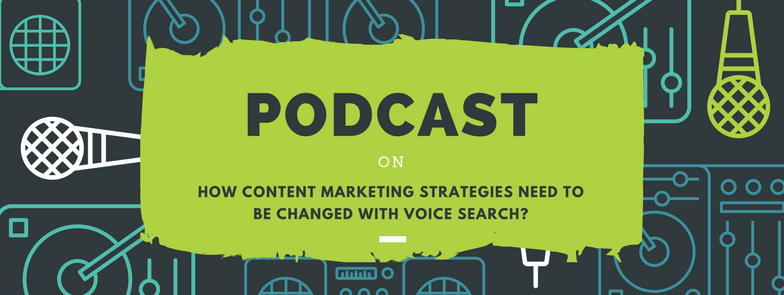Digital marketing is the new way to reach and influence your target audience. With a small budget, you can still create effective content that will increase your brand awareness, drive website traffic and convert leads into sales.
Digital marketing has become so widespread that it’s almost impossible to ignore it. The number of users accessing digital media on a daily basis has never been higher. However, there are still many companies who don’t understand what it means to have an effective digital strategy.
Reducing the cost of digital marketing is one of the top challenges for companies who want to get started at a low price point. Today, there are so many online tools that it’s hard to know which ones to trust and where to begin.
We understand how challenging it can be to find ways to cut back on your advertising budget without losing out on effectiveness in your marketing strategy. Luckily, we discovered some of the best tools out there that can help you create an effective impact with a small budget while also reducing costs in the future.
The U.S. Small Business Administration recommends that small businesses spend 7% - 8% of their gross revenue on marketing. This figure is a research backed projection of what could be considered an effective investment in the marketing of your business or products and it continues to evaluate that on average, about half of a company's marketing budget goes toward digital marketing. This projection is quite important for businesses with a small marketing budget trying to understand how best to allocate their marketing budget and resources.
Where is my money going?
Before getting carried away with the means to best utilize your marketing budget, you should know what your budget should consider. The marketing budget allocation is quite possibly different for various businesses and this means we have to rely on what could be general but this rough plan can help you make allocation with minimal changes.
What do you need?
-
Marketing software: Marketing software allows businesses to effectively carry out campaigns, target markets and turn leads into sales. The marketing tools available to companies of all sizes allow them to harness their resources and eliminate repetitive work. Companies can also focus on more pressing matters with these tools. These tools offer you the professional touch and accessibility in managing your marketing campaigns and handle day to day marketing needs. All your marketing can be met with the right software and there is indeed a software for pretty much anything you can think of.
-
Freelancers: This is the go-to option for many small businesses and surveys estimate that the freelance industry provides a myriad of services especially to the marketing needs of small businesses. They are especially useful if you want to test out a new marketing strategy for a short period of time before you allocate it to a permanent employee.
-
Your own folk: Businesses have slowly yet surely grasped the importance of digital marketing and have specialized wings dealing with digital marketing within their marketing and PR departments. This is a stronghold approach but is it worth it and will it be suitable on a small budget, read on to find out.
-
Advertising costs: From sponsored content to search engine advertising and social media promotions, a bulk of your budget will be spent on the direct advertising requirements for your business and products.
-
Marketing agencies like Emarketz: The processes defined above provide multiple add ons to the same end - creating your brand online, increasing your visibility and promoting you to the right audience. Only this is you are directly involved in all the functions - there is another option - marketing agencies. Small businesses to large corporations have a long history of success stories utilizing the service of marketing agencies catering to all their marketing needs and all they have to do is to marvel at how their marketing budget is being effectively put to work.
Inexpensive yet effective
-
Social media marketing: Social media marketing (SMM) uses social media and social networks—like Facebook, Twitter, and Instagram—to market products and services, engage with existing customers, and reach new ones. This is a direct access to your audience where you can through the medium of engaging posts connect with your audience to build your brand, increase sales, and drive website traffic. It involves publishing a large number of content which are both attractive in terms of quality and precise in terms of its business prospects. Your social media marketing can be improved with a variety of free and paid (yet very reasonably priced) social media management tools. The effectiveness of this strategy depends on the planning and execution of your posts, the engagement you can curate and precise analytics you can make use of, most platforms offer this for free in-app itself.
-
Mobile marketing: WIth a majority of the population continuously scrolling through their smartphones, it will be a huge loss to undermine mobile marketing and most of it is not going to be a burden on your budget. Mobile marketing is a multi-channel, digital marketing strategy that relies on ads that appear on mobile smartphones, tablets, or other mobile devices and uses websites, email, SMS and MMS, social media and apps to reach the users on the other end. The true success of mobile marketing lies in the effectiveness of utilizing features like location services to carefully target audiences in your desired location and personalize ads for the most lucrative conversions possible.
-
Your own folk v/s agencies: Most small businesses do not, at least not in their initial phase, require an in-house marketing team, much less a specialized digital marketing wing. Note that your employees in the digital marketing department would come under your marketing budget along with the activities they pursue - this has led many to wonder about the effectiveness of having a specialized and dedicated marketing team when agencies who specialize in marketing provide you with a wide range of services, including full-stack digital marketing and what's great is you do not have to make a permanent employee out of them. They are also bound by extreme checks on analytics and reporting to understand how they have been helping you get better and how their services have aided your business growth. This places you in a position of control to bring the best out of your marketing requirements and all this in very personalized budgets.
Our expert marketing team advises that the best techniques and tactics that small businesses can utilize for marketing in their tight budgets should include a Search Engine Optimization (SEO) and PPC - pay per click campaigns. With sound investments in these options, you can optimize your business growth quite steadily.
Working on a small budget - procedure you cannot skip
-
A marketing strategy clearly delineates your goals, explores your customer base and market, analyzes your products and services in-depth and through the marketing lens, define a clear picture of your objectives and the techniques of marketing that you will be employing -where, how and the time period and finally allocates a fund for each aspect of your marketing strategy.
-
This is followed by a crucial analytical stage where website analytics software like Google Analytics and others are employed to measure the success of your marketing strategy and the return on investment you have generated from the techniques and investments you have pursued. This is critically reported with definitive ideas and weak points to be improved and implemented.
-
The final stage in the cyclical process is to amend your marketing strategy with the new found improvement possibilities and repeat.




